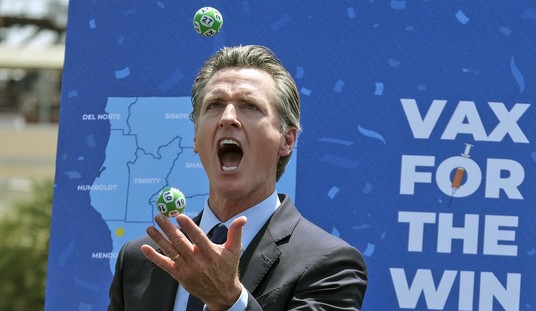The Michigan primary is shaping up to be a two-horse race between Mitt Romney and Rick Santorum. Michigan is an important state for Romney — in particular, because he was born and raised there, and he grew up as the son of George Romney, a prominent Michigan automaker and former three-term Michigan governor.
A Detroit Free Press/WXYZ-TV poll that was taken before the debate on Wednesday night showed that Santorum had a 3-point advantage over Romney — 37% to 34%. Ron Paul and Newt Gingrich came in at 10% and 7%, respectively, both of them behind “Undecided/refused.”
Among the poll’s more noteworthy findings,
- Romney led Santorum among women 37% to 33%;
- Santorum led Romney among men 41% to 29%;
- Romney led Santorum among pro-choice voters 43% to 18%;
- Santorum led Romney among pro-life voters 48% to 29%;
- Romney led Santorum among moderate voters by 51% to 17%; and
- Santorum led Romney among conservative voters and voters who profess no political leaning by 46% to 27% and 54% to 27%, respectively.
Judging by the poll’s results, Romney’s Mormon faith could play an important part in the Michigan primary and possibly in the rest of the nation as well. Santorum had a 48% to 19% advantage over Romney among religious voters who are other than Catholic or Protestant, and those who are “Evangelical/Born-again Christians” leaned toward Santorum by 51% to 24%. Even so, according to the Detroit Free Press/WXYZ-TV poll, Michigan was still in play. Romney was closing the gap, and 45% of poll participants said that they were willing to change their minds.
The latest Gallup tracking poll among registered Republican voters nationally that was taken between February 18-22 mirrored the Detroit Free Press/WXYZ-TV poll. Santorum came from nowhere, and with his three-state sweep in Colorado, Minnesota, and Missouri, he surged to a lead, but he has plateaued and is now dropping. Conversely, Romney showed a dramatic drop in support following Santorum’s hat trick, but he has leveled off and is starting to rise again.
By Friday, a new Rasmussen poll showed that Romney had eliminated the gap completely and captured a 6-point lead in Michigan:
True to a primary season already marked by sudden and surprising ups and downs, Mitt Romney has jumped back into the lead in Michigan’s Republican Primary race. The vote’s on Tuesday.
The latest Rasmussen Reports telephone survey of Likely Republican Primary Voters in Michigan shows Romney with 40% of the vote and former U.S. Senator Rick Santorum with 34%. The poll was conducted on Thursday night, following the last scheduled debate among the GOP candidates.
Likewise, a Mitchell/Rosetta Stone poll released on Friday showed that Romney has a 3-point leader over Santorum in Michigan:
Fueled by a strong debate performance Wednesday night, Mitt Romney continues to lead Rick Santorum in the latest Mitchell/Rosetta Stone Poll of Michigan conducted for MIRS (Michigan Information & Research Service) the night after the CNN Debate. The two front runners are still in a statistical dead heat, although Romney (36%) has increased his lead by 1% over Rick Santorum (33%) while Ron Paul (12%) replaced Newt Gingrich (9%) in third place. Undecided voters dropped in half to 11%.
Whether Santorum will eventually go the way of Newt Gingrich remains to be seen. Gingrich came on like gangbusters, too, and then he experienced a precipitous decline. The South Carolina primary breathed new life into Gingrich’s campaign, but he plummeted again after a dismal showing in Florida. That said, if we haven’t learned anything else during the GOP primary season, we should have learned this: you should take polling data with a grain of salt. Polls tell us how voters feel about potential candidates at any given moment, but as my colleague at the University of Virginia, Larry Sabato, said,
Real votes make clear what polls cannot fully pick up. The Republican election season has been shaped by two forces, other than the obvious one to oust President Obama. First, the strongest potential candidates did not enter the fray, and the remaining contenders do not satisfy most GOP voters. At every polling opportunity, Republicans have expressed their desire for a wider choice. Put another way, Republicans would love to combine the economic acumen of Mitt Romney, the social conservatism of Rick Santorum, the debating skills of Newt Gingrich and the enthusiasm of young voters for Ron Paul into one candidate. That feat must await several generations of advances in genetic engineering.
A few days ago, PJ Media conducted a presidential poll, but instead of including only the announced candidates, they added Mitch Daniels, Paul Ryan, Chris Christie, Jeb Bush, Sarah Palin, and Condoleezza Rice to the mix. Their results showed that only Santorum and Rice would narrowly defeat Obama as of February 21-22, but Rice is an unproven political commodity. Although she has served as secretary of state and national security advisor, she has never run for public office and she has not been vetted the way that the announced candidates have. Thus, it doesn’t make sense to place too much weight on her showing in the PJ Media poll.
For that matter, Santorum is just beginning to garner attention. Following his three-state sweep, I wrote this in an American Thinker blog post:
Even though Rick Santorum had a great day last Tuesday, he has yet to undergo the kind of scrutiny that frontrunners attract. Both Rick Perry and Newt Gingrich have been where Santorum is now. Perry is back in Texas and Gingrich is fading to black. Can Santorum succeed where they failed? Maybe he can and maybe he can’t, but this much is certain: Mitt Romney has undergone intense scrutiny and even vilification for years and like a Timex watch, he’s still ticking. That should tell us something.
Judging by the poll numbers released on Friday, I was correct. Among the candidates for the GOP presidential nomination, only Mitt Romney has remained relatively steady over time despite the fact that conservative Republicans have been searching frantically for a conservative “unRomney.” To date, they have been unsuccessful. Each person they have homed in on has failed to convince voters that he is the right man to take on President Obama in the general election, but they continue their search anyway.
If Romney wins the Michigan primary, conservative Republicans should seriously consider giving up their search, getting behind him, and spending their time trying to influence his agenda. Even if Romney loses in Michigan, which appears unlikely at this point, they should still work toward persuading him to champion conservative causes because the race is far from over, and he will play an important part in shaping the Republican agenda regardless of the final outcome.









Join the conversation as a VIP Member